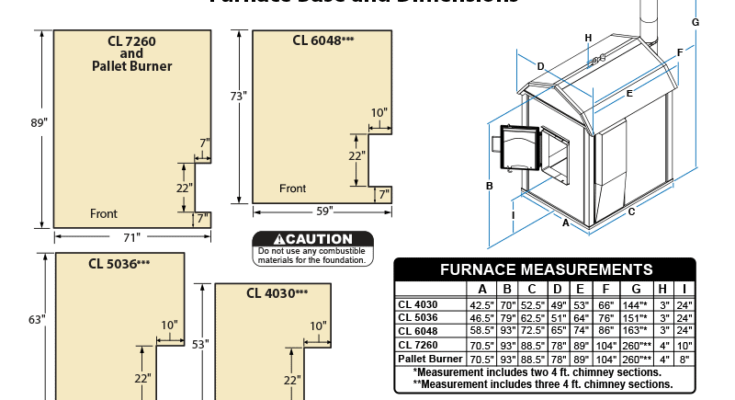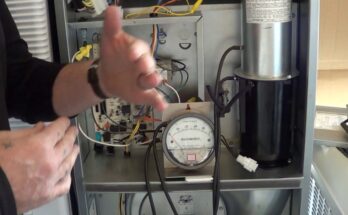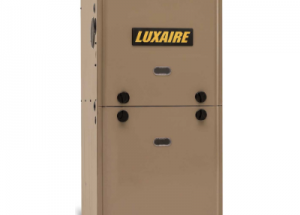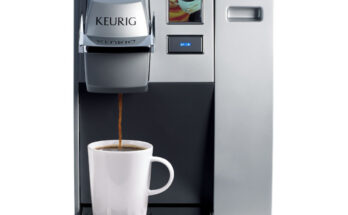Central Boiler troubleshooting involves diagnosing and resolving issues with central heating systems. Common problems include poor heating performance and error codes.
Central Boiler systems are essential for maintaining comfortable temperatures in homes and buildings. Efficient operation ensures consistent heating and energy savings. Troubleshooting these systems can prevent minor issues from escalating into costly repairs. Common problems include poor heating performance, error codes, and unusual noises.
Addressing these concerns promptly helps maintain system efficiency and longevity. Regular maintenance and understanding the basics of your Central Boiler can make troubleshooting easier. By staying informed and proactive, you can ensure your heating system runs smoothly throughout the colder months.

Credit: m.yelp.com
Common Startup Problems
Starting a central boiler can sometimes be tricky. Understanding common startup problems helps maintain your boiler. Let’s explore two frequent issues: pilot light problems and ignition failures.
Pilot Light Issues
A pilot light that won’t stay lit is a frequent issue. This can occur due to various reasons:
- Thermocouple is faulty or misaligned.
- Pilot orifice is clogged.
- Gas supply is interrupted.
To troubleshoot, follow these steps:
- Check if the thermocouple is securely connected.
- Clean the pilot orifice using a thin wire.
- Ensure the gas valve is open.
If the pilot light still fails, consider replacing the thermocouple. A professional should handle this if you are unsure.
Ignition Failures
Ignition failures can be frustrating. They often happen due to electrical issues or fuel problems.
Common causes include:
| Cause | Solution |
|---|---|
| Faulty ignition switch | Test and replace the switch. |
| Blocked fuel lines | Clean or replace the lines. |
| Low fuel pressure | Check and adjust pressure settings. |
To fix ignition failures:
- Inspect the ignition switch for wear.
- Ensure fuel lines are clear.
- Verify fuel pressure meets requirements.
Regular maintenance can prevent these problems. Keep your boiler in top shape for consistent performance.
Poor Heating Performance
Central boilers sometimes face poor heating performance issues. This can lead to uncomfortable living spaces. Let’s explore common problems and solutions.
Inconsistent Temperatures
Inconsistent temperatures can be frustrating. Here are some potential reasons:
- Thermostat Issues: Check if the thermostat is working correctly.
- Air Trapped in System: Air pockets can block heat flow.
- Dirty Filters: Clean or replace filters regularly.
To fix inconsistent temperatures, follow these steps:
- Inspect the thermostat and replace if needed.
- Bleed the radiators to remove trapped air.
- Clean or change the filters monthly.
Slow Heat-up Times
Slow heat-up times can make your home uncomfortable. Here are some causes:
| Cause | Solution |
|---|---|
| Low Water Levels | Ensure the boiler has enough water. |
| Faulty Circulator Pump | Check and replace the pump if needed. |
| Insufficient Insulation | Insulate pipes to retain heat. |
To address slow heat-up times, consider these actions:
- Check water levels and refill if low.
- Inspect and service the circulator pump.
- Insulate your boiler pipes.
Water Leaks
Water leaks in your central boiler can cause big problems. Fixing these leaks quickly is essential. This section will help you identify and fix common leak sources.
Identifying Leak Sources
Finding the source of a water leak is the first step. Here are some common places to check:
- Connections: Check all pipe connections.
- Valves: Inspect the pressure relief valve and drain valve.
- Seals and Gaskets: Look for worn-out seals and gaskets.
- Tank: Examine the tank for cracks or corrosion.
Use a flashlight to inspect hard-to-see areas. Look for water stains or puddles near the boiler. A dry paper towel can help find small leaks.
Fixing Common Leak Points
Once you identify the leak source, you can fix it. Here are common fixes:
| Leak Source | Fix |
|---|---|
| Pipe Connections | Tighten the connections using a wrench. |
| Pressure Relief Valve | Replace the valve if it is faulty. |
| Drain Valve | Ensure the valve is fully closed. |
| Seals and Gaskets | Replace worn-out seals and gaskets. |
| Tank | Patch small cracks with epoxy or replace the tank. |
Always turn off the boiler before starting any repairs. Wear safety gloves and goggles for protection.
For complex repairs, consider hiring a professional. Ensuring a proper fix is crucial for boiler safety.
Noisy Operation
Experiencing noisy operation in your Central Boiler can be frustrating. Understanding the root cause can help you fix the issue quickly. This section will address common noises, specifically banging and whistling sounds, and provide troubleshooting tips.
Banging Noises
Banging noises often signal a serious issue. It may indicate trapped air in the system or a water hammer. Both need immediate attention to avoid damage.
| Possible Cause | Solution |
|---|---|
| Trapped Air | Bleed the radiators to release air. |
| Water Hammer | Check for loose pipes and secure them. |
- Trapped Air – Bleed the radiators to release air.
- Water Hammer – Check for loose pipes and secure them.
Whistling Sounds
Whistling noises usually come from a different set of issues. They can be due to high pressure, or sediment buildup. Both are easy to fix with the right approach.
- Check the pressure valve. Ensure it’s set correctly.
- Flush the system to remove sediment buildup.
| Possible Cause | Solution |
|---|---|
| High Pressure | Adjust the pressure valve. |
| Sediment Buildup | Flush the system. |
- High Pressure – Adjust the pressure valve.
- Sediment Buildup – Flush the system.
Addressing these common issues can help restore your boiler’s quiet operation. This ensures a long-lasting and efficient heating system.
Pressure Fluctuations
Pressure fluctuations in a central boiler can cause many issues. Understanding high pressure and low pressure will help you troubleshoot effectively. Let’s dive into the details.
High Pressure
High pressure in your boiler can be dangerous. It can cause leaks or even bursts. Here are some common causes and solutions:
- Overfilled system: Drain some water until the pressure normalizes.
- Faulty pressure relief valve: Replace the valve if it’s not working properly.
- Thermostat issues: Check if the thermostat is set too high and adjust it.
Low Pressure
Low pressure can make your boiler inefficient. It can also stop it from working. Here are some common causes and fixes:
- Leaks in the system: Inspect and fix any leaks in the pipes or radiators.
- Failed pump: Ensure the pump is functioning and replace it if necessary.
- Bleeding radiators: Bleed the radiators to remove trapped air, which can lower pressure.
| Issue | High Pressure | Low Pressure |
|---|---|---|
| System Overfilled | Drain water | Not applicable |
| Faulty Pressure Valve | Replace valve | Not applicable |
| Thermostat Issues | Adjust thermostat | Not applicable |
| Leaks in the System | Not applicable | Fix leaks |
| Failed Pump | Not applicable | Replace pump |
| Bleeding Radiators | Not applicable | Bleed radiators |
Credit: centralboiler.com
Thermostat Malfunctions
Thermostat malfunctions can disrupt your Central Boiler’s efficiency. Understanding common issues helps maintain optimal performance. Let’s dive into two main problems: calibration issues and unresponsive controls.
Calibration Issues
Calibration issues can cause inaccurate temperature readings. This leads to improper heating. Ensuring your thermostat is correctly calibrated is crucial.
- Check the thermostat’s settings
- Compare the reading with an external thermometer
- Adjust the calibration if there’s a discrepancy
Follow these steps to calibrate:
- Turn off the power to the boiler
- Remove the thermostat cover
- Locate the calibration screw
- Use a small screwdriver to adjust the screw
- Replace the cover and power on the boiler
Unresponsive Controls
Unresponsive controls can halt your boiler’s operation. Identifying the cause quickly is essential.
Here are common reasons:
| Cause | Solution |
|---|---|
| Dead batteries | Replace the batteries |
| Loose wiring | Check and secure connections |
| Faulty thermostat | Consider replacing the thermostat |
To troubleshoot unresponsive controls, follow these steps:
- Check the thermostat display
- Replace the batteries if needed
- Inspect wiring connections
- Test the thermostat by adjusting the settings
- Consult a professional if the issue persists
Regular maintenance and prompt troubleshooting can prevent major issues.
Maintenance Tips
Maintaining your Central Boiler is essential for smooth operation. Regular upkeep can prevent unexpected issues. Below are some key maintenance tips to keep your boiler in top shape.
Regular Cleaning
Regular cleaning is crucial for your Central Boiler. Dust and debris can build up, affecting performance. Follow these steps to keep it clean:
- Turn off the boiler and let it cool.
- Remove the ash pan and empty it.
- Clean the firebox with a brush.
- Wipe down exterior surfaces with a damp cloth.
Keeping your boiler clean enhances its efficiency. It also prolongs its lifespan.
Component Inspections
Inspecting components regularly can prevent minor issues from becoming major problems. Pay attention to these key parts:
| Component | Inspection Frequency |
|---|---|
| Water Level | Weekly |
| Gaskets | Monthly |
| Chimney | Quarterly |
| Pumps and Valves | Annually |
For the water level, ensure it stays within the recommended range. Check gaskets for any wear or damage. Examine the chimney for blockages. Inspect pumps and valves for leaks or malfunctions.
Regular inspections can save you from costly repairs. Address issues as soon as you spot them.

Credit: www.pinterest.com
When To Call A Professional
Understanding when to call a professional for your Central Boiler issues is crucial. This can save you time and prevent further damage. Not all problems can be fixed by DIY methods. Some require expert attention. Let’s explore the key signs that indicate you need professional help.
Identifying Serious Issues
Some boiler issues are more serious than others. If you notice any of the following signs, it’s time to call a technician:
- Leaking Water: Water leaks can cause significant damage to your home.
- Strange Noises: Unusual sounds like banging or whistling indicate serious issues.
- Inconsistent Heating: If some rooms are cold while others are hot, your boiler needs expert care.
- Frequent Shutdowns: A boiler that keeps turning off needs professional attention.
- High Energy Bills: A spike in energy costs can signal efficiency problems.
Choosing A Reliable Technician
Finding a reliable technician is vital for resolving boiler issues. Here are some tips to help you choose the right professional:
- Check Certifications: Ensure the technician is certified and licensed.
- Read Reviews: Look for customer reviews and ratings online.
- Ask for References: A good technician will have satisfied customers.
- Get Multiple Quotes: Compare prices from different technicians.
- Verify Insurance: Ensure the technician has insurance for your protection.
By following these steps, you can find a trustworthy technician. This ensures your Central Boiler gets the best care.
Frequently Asked Questions
How Do I Reset My Central Heating Boiler?
To reset your central heating boiler, turn off the power. Wait 30 seconds. Turn the power back on. Press the reset button, usually located on the boiler’s control panel. Check the manual for specific instructions.
Why Is My Central Heating Boiler Not Firing Up?
Your central heating boiler might not fire up due to thermostat issues, low pressure, or a faulty ignition. Check for error codes, ensure the thermostat is set correctly, and verify that the boiler has enough pressure. If problems persist, contact a professional technician.
Why Is My Main Boiler Central Heating Not Working?
Your main boiler central heating might not work due to thermostat issues, low pressure, or a faulty pilot light. Check for error codes, ensure the thermostat is set correctly, and verify the boiler pressure is adequate. If the problem persists, contact a professional technician for diagnosis and repair.
How Do I Troubleshoot My Boiler?
Check the thermostat settings. Ensure the power is on. Inspect the pressure gauge. Bleed the radiators. Consult the manual for error codes.
Conclusion
Understanding how to troubleshoot a Central Boiler can save time and money. Regular maintenance prevents common issues. Always consult the manual for guidance. If problems persist, seek professional help. Proper care ensures your boiler runs efficiently and lasts longer. Keep your home warm and energy costs low by addressing issues promptly.



